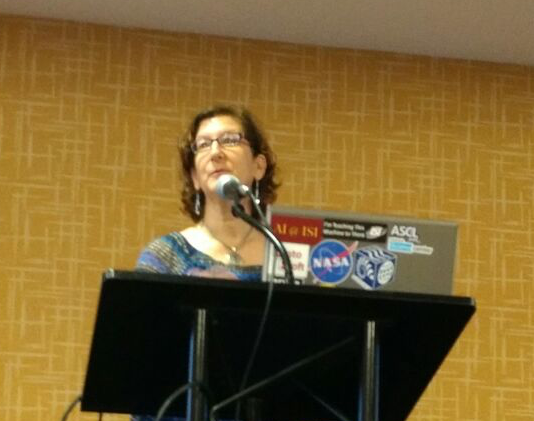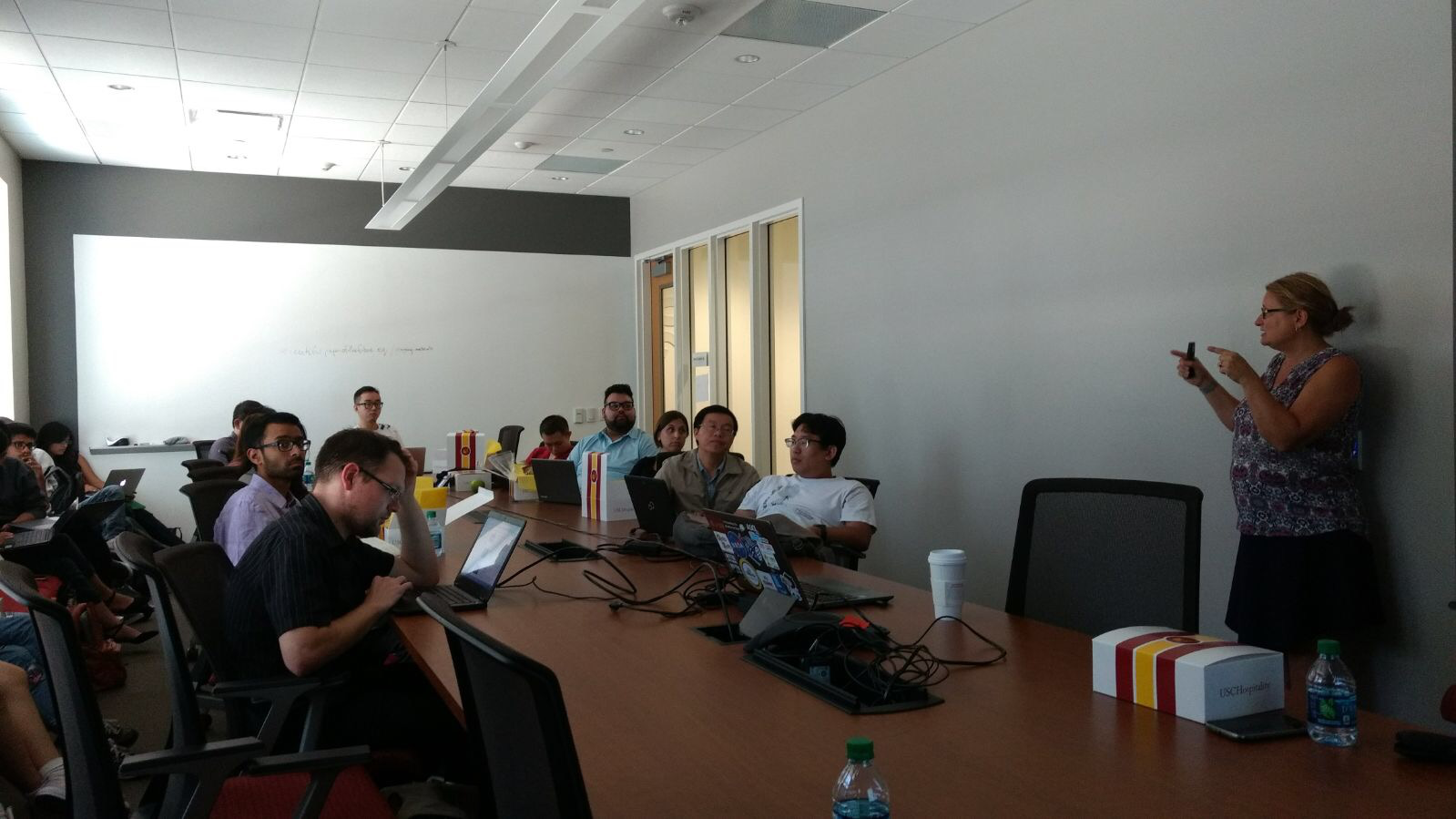The Scientific Papers of the Future initiative was kicked off with a training session at the at the Center for Reproducible Neuroscience at Stanford University. Instructors Yolanda Gil (presenting) and Daniel Garijo (front row) of the University of Southern California presented best practices of reproducible research, open science, and digital scholarship. Discussions with Stanford researchers from various labs on the benefits and challenges in neuroscience studies resulted in a publication that describes requirements for neuroscience papers of the future.

A tutorial on learning to write Scientific Papers of the Future was offered at the annual conference of the Association for the Advancement of Artificial Intelligence (AAAI). AI researchers Yolanda Gil and Daniel Garijo (front row) of the University of Southern California presented best practices of reproducible research, open science, and digital scholarship. Gail Clement, head of Research Libraries at the California Institute of Technology, presented useful tools for authors to get full credit for all their research products and link them to their author profile through persistent unique identifiers.

A training session on learning to write Scientific Papers of the Future was invited by the Center for Excellence in Research at the University of Southern California (USC). USC research professor Yolanda Gil and post-doctoral researcher Daniel Garijo discussed best practices in open science and digital scholarship for scientific data and software. Lucas Carvalho, a visiting researcher and PhD student from the University of Campinas in Brazil, presented a range of techniques to capture workflows and provenance to facilitate reproducibility.
